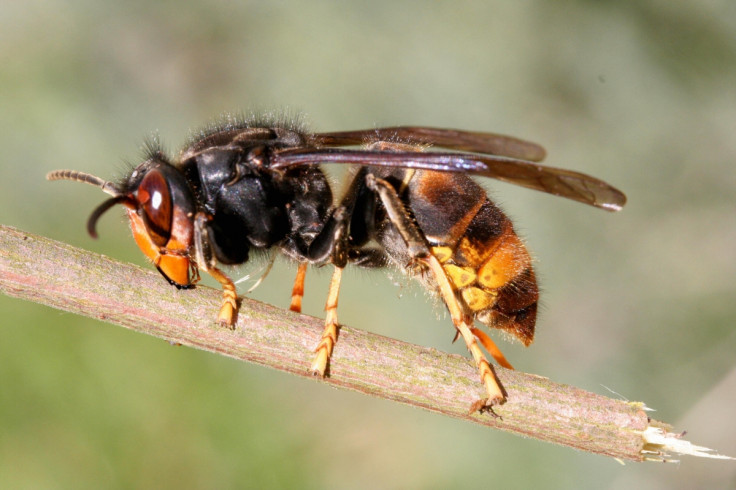Murder hornets kill 70-year-old Portuguese man
Murder hornets, also known as Asian Giant hornets are invasive species that can grow up to a length of 2 inches
A man was attacked and killed on Thursday by murderous hornets while picking persimmons at a farm in Porto, Portugal. The 70-year-old man, identified only by his first name, Celso, was picking persimmons with his friend when they happened upon a nest of murder hornets. Celso died at the scene from cardiac arrest caused by anaphylactic shock even after repeated attempts by paramedics to save his life.
Celso's friend, 60-year-old Abilio Rodrigues was also attacked by the hornets.
"They stung in the arm and on the head while I was on a ladder about 20 feet from the ground but I endured the pain so as not to fall," Rodrigues said.
"Celso was also hurt and we went to try to get help. I put vinegar on my wounds to see if it eased the pain but by then Celso was having difficulty speaking", he added.
The hornet nest was destroyed to prevent further fatal attacks.
This isn't the first incident of murder hornets wreaking havoc. Europe as well as the US and Canada have reported sightings of the killer insects, the New York Post wrote.
Murder hornets, also known as Asian Giant hornets are invasive species that can grow up to a length of 2 inches. They have a very powerful stinger filled with a deadly venom known to cause an average of 30 to 50 deaths each year in Japan. They pose a massive threat to honey bees and are known to decapitate the bees in a matter of seconds when they go on mass attacks on bee hives.
In a recent study, Japanese honeybees have shown the same killer capabilities that can match up to murder hornets by working in large numbers. A lone hornet is lured into a honeybee hive and as soon as the hornet attacks a single honeybee, the rest of the hive gets triggered to attack the hornet.
Although the hornets may be much bigger in size compared to Japanese honeybees, the large number of bees in the hive that have adapted an ambush defense is no match for a single hornet.
The Washington Department of Agriculture has recorded four sightings of the hornets in North America. Two were in Blaine, Washington and two others in British Columbia, Canada.

© Copyright IBTimes 2025. All rights reserved.





















